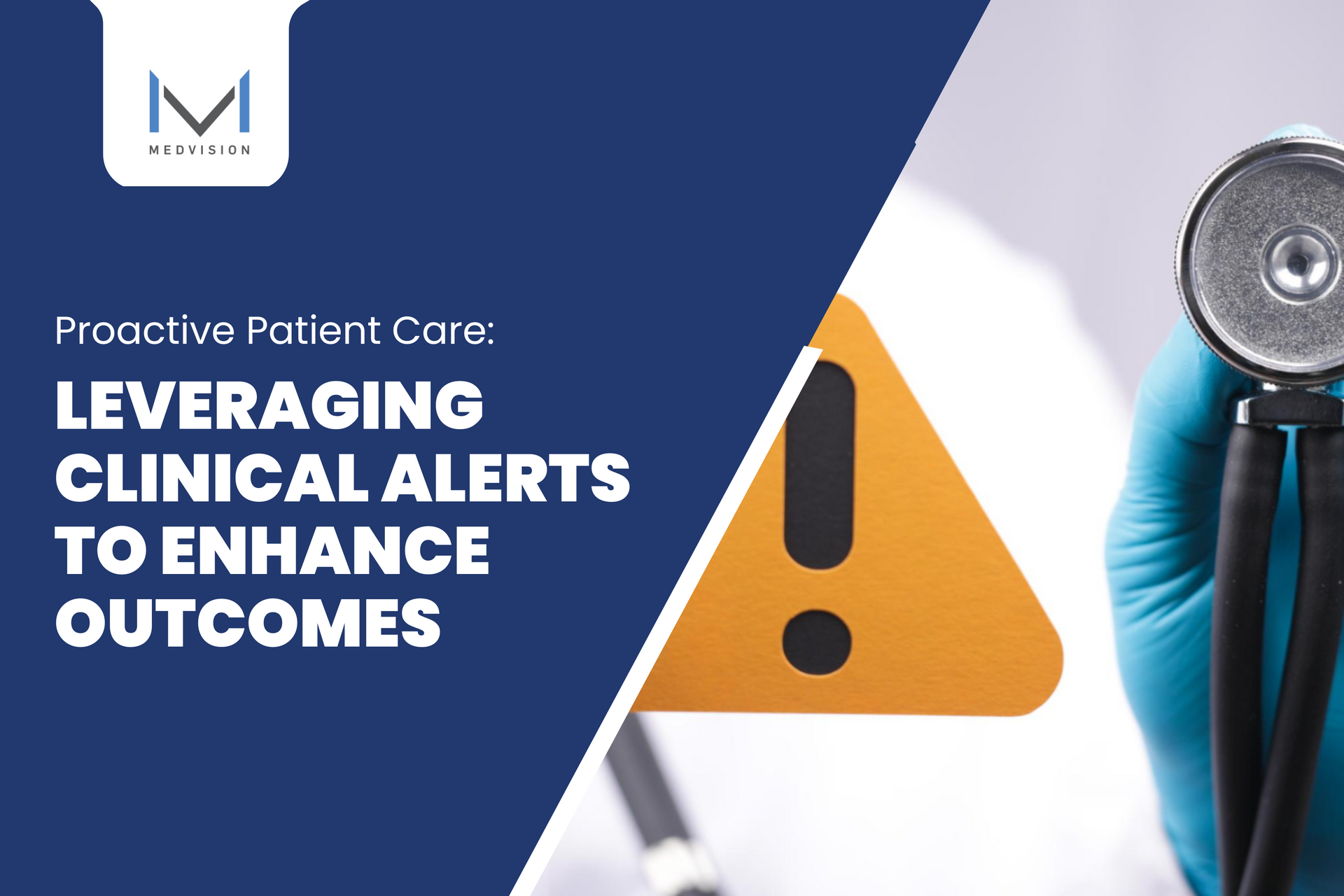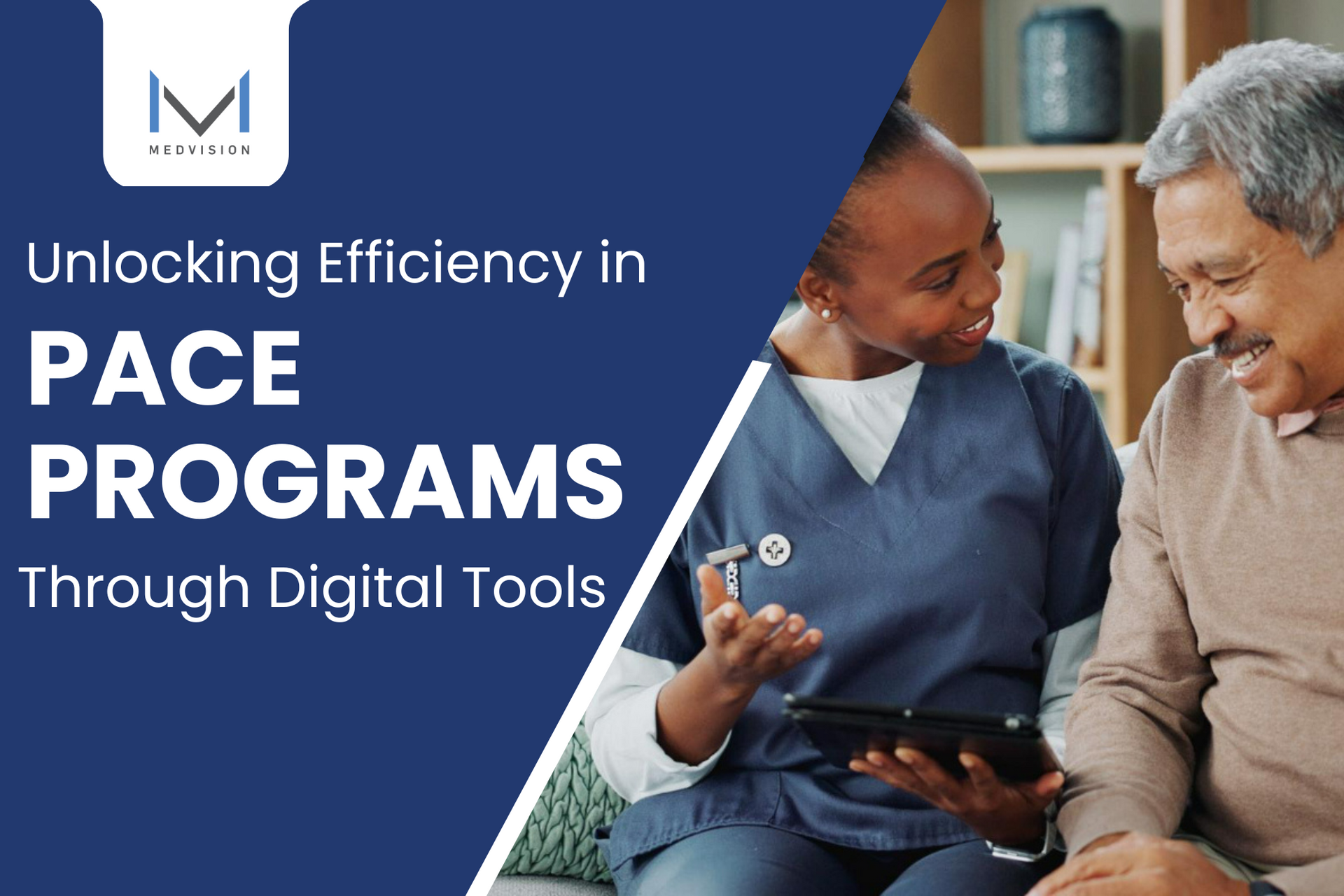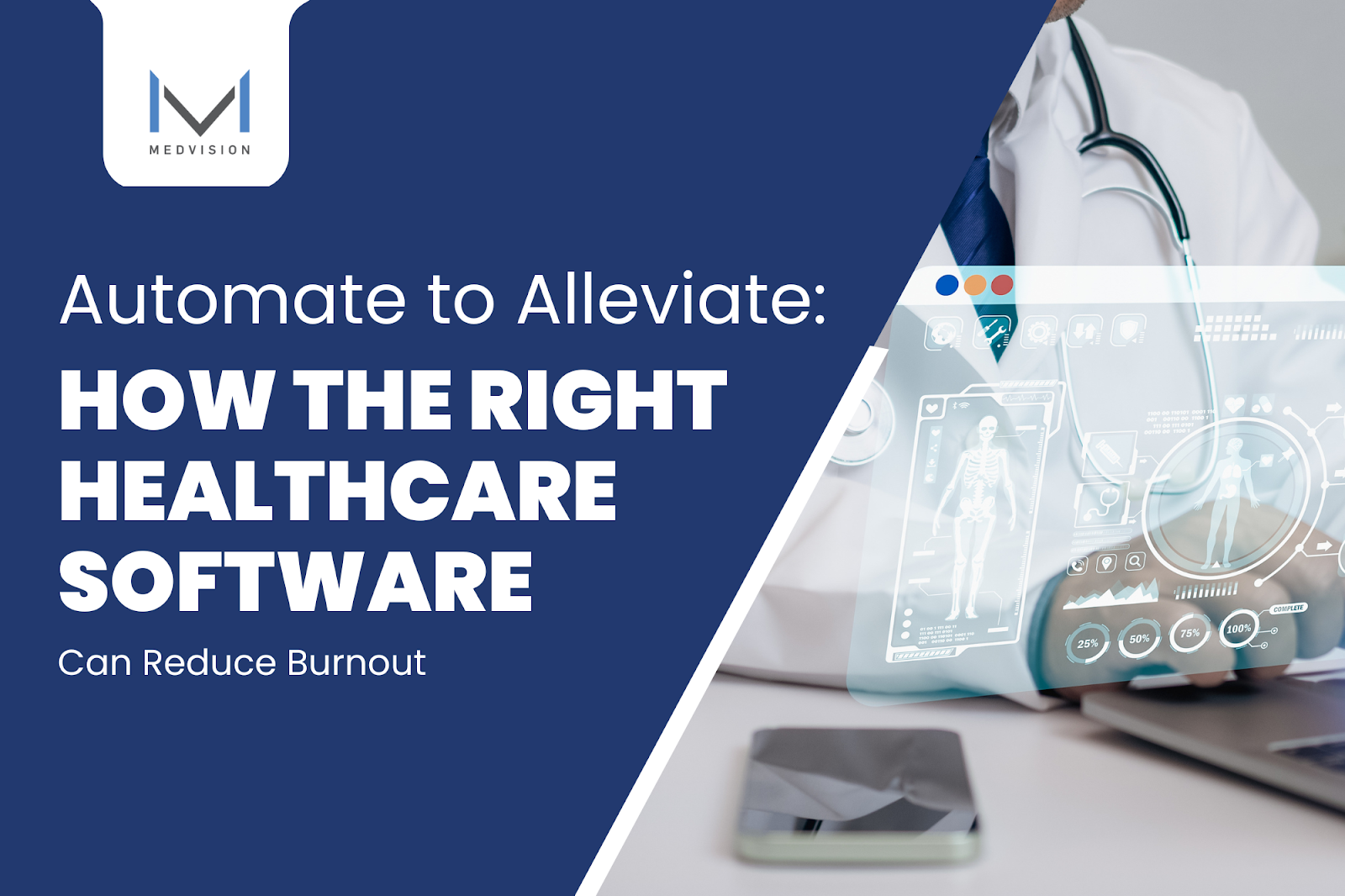Leveraging Clinical Alerts To Enhance Outcomes

Just as no two patients are alike, preventive care strategies vary greatly across healthcare organizations.
Independent physician associations (IPAs) may be doing digital check-ins, such as sending chronic condition patients weekly prompts to submit vitals. For an accountable care organization (ACO), proactive care may involve high-risk individuals getting reminders for preventive screenings.
Creating a system that prioritizes patient well-being allows clinics to keep patients healthy without the exorbitant expenses you expect for quality care. But how do IPAs, ACOs, and other value-based care organizations boost a community-wide campaign?
Enter clinical alerts—automated, timely notifications that signal healthcare providers when immediate action is needed. Clinics championing patient safety and care quality will benefit from a clear look at the importance and applications of these vital healthcare solutions.
This post kicks off our series on proactive healthcare with a special focus on the power of customizable alerts.
Want to Optimize Your Alert Tools?
Clinical Alerts 101
Before introducing clinical decision tools and alerts, clinicians and staff had to review extensive patient data manually. They would examine physical charts, notes, and lab results to identify patients at high risk or in need of preventive care.
After compiling a list of patients, they would reach out to them through phone calls, texts, or emails. Clinical alerts transform this time-consuming process: these automated notifications within care management software systems are designed to promptly inform clinicians of critical patient information.
These alerts function as reminders or warnings and trigger timely action, including:
- Modifying medications to avoid harmful drug interactions or allergic reactions
- Ordering immediate tests when critical values, like low blood sugar levels, arise
- Notifying care teams of coordinated care or changes in a patient’s care plan
Overview of Clinical Alerts
Different clinical alerts contain varying information that triggers diverse clinical actions. These alerts consist of the following:
Medication Alerts warn providers of potential drug interactions, dosage errors, or duplicate prescriptions.
- Impact: Helps prevent adverse drug events and enhances medication safety for patients.
Allergy Alerts notify clinicians of known patient allergies, especially medications, to avoid adverse reactions.
- Impact: Ensures patients are not prescribed treatments that could trigger allergic responses, promoting safer care practices.
Critical Lab Result Notifications send out alerts to providers when lab results are outside normal ranges and require urgent attention.
- Impact: Enables timely interventions, which can be crucial in preventing condition deterioration or saving lives.
Preventive Screening Alerts remind clinicians when patients are due for preventive screenings based on age, medical history, or risk factors.
- Impact: Supports proactive care by ensuring patients receive timely screenings, reducing the likelihood of missed diagnoses.
Vitals and Monitoring Alerts inform providers of significant changes in patient vital signs or other monitored health metrics.
- Impact: Helps clinicians respond quickly to health changes, particularly for patients with chronic conditions or those in critical care.
Making a Difference in Patient Care
For patients managing multiple conditions and medications, juggling several medications may lead to adverse reactions. Clinical alerts can help by providing real-time notifications to clinicians about potential interactions, duplicate drugs, or allergies recorded in prior visits—details that may otherwise go unnoticed.
Alerts in care management software also help clinicians provide timely, appropriate care. How does this work? These alerts contain essential patient information (say abnormal lab results), which the platform automatically sends to providers without delay. Care teams can then respond quickly and make better-informed decisions.
The automatic sharing of clinical alerts across the care team keeps everyone informed and aligned. Enhanced team coordination ensures that each member is aware of important developments in the patient’s care journey.
Enhancing Patient Outcomes Through Targeted Alerts

Clinics can utilize various methods to implement alerts to achieve better health outcomes. Methods include alert integration, customization, and monitoring the effectiveness of those alerts, as explored in detail below.
Best Practices for Incorporating Alerts into Daily Operations
- Involve staff in the implementation process for better buy-in
- Ensure alerts are relevant, actionable, and straightforward to avoid confusion
- Provide training sessions to help clinicians understand and utilize alerts effectively
- Establish clear protocols for responding to alerts to streamline workflows
Tailoring Alerts for the Clinic and Patient Population
- Adjust alert criteria based on the common conditions and medications of your patient population
- Collaborate with clinicians to identify the most relevant alert types for your organization
- Monitor feedback from staff to refine and improve alert customization
- Aim to reduce alert fatigue by focusing on high-priority alerts tailored to specific needs
Tracking the Effectiveness of Clinical Alerts on Patient Outcomes
- Regularly assess the impact of alerts on patient outcomes to identify successful strategies
- Use metrics to evaluate the performance of alerts and inform necessary adjustments
- Engage staff in discussions about alert outcomes to encourage continuous improvement
The Future of Intelligent Clinical Alerts
Exciting advancements are transforming clinical alerts into powerful tools. One JAMA study demonstrates how helpful these alerts are in providing "systemic nudges" to physicians to provide timely intervention (prescribing medication) to patients with chronic kidney disease or CKD.
Certain use-case scenarios synchronize patient data from wearable devices to electronic medical records. These efforts have shown success in informing clinician's health programs, including obesity prevention.
Building from success stories and integrating emerging technologies (AI), clinical alerts are poised to bolster best practices and enable timely interventions, significantly improving patient safety and outcomes in a connected healthcare landscape.
Unlocking the Full Potential of Your Alerts
Delayed responses to patient needs and missed drug interactions can lead to worsening conditions and more frequent emergency visits. While clinical alerts may seem intrusive, they play a vital role in patient safety and effective care.
Leveraging such care coordination software tools enhances timely action, clear communication, and ultimately boosts care quality and clinic reputation. To see how clinical alerts can elevate your care, call our specialists at 847-222-1006 ext 3. Our team can provide a quick walkthrough of our proven approach to successful alert implementation in clinics addressing community health needs.
Curious about how alerts can reduce ED visits? Stay tuned for our next post, where we’ll explore the role of health monitoring and alerts in preventing hospitalizations.
Elevate Preventive Care:
Recently published articles
Keep in touch
Subscribe to get the latest update
Trending topics
Share your insights on social media
Upcoming events and company news















